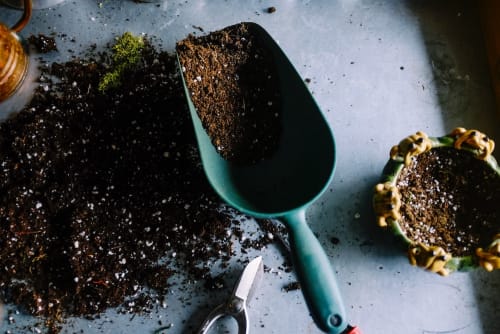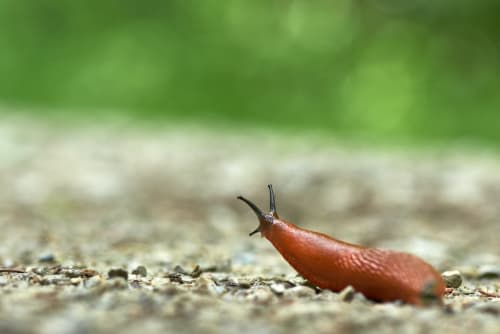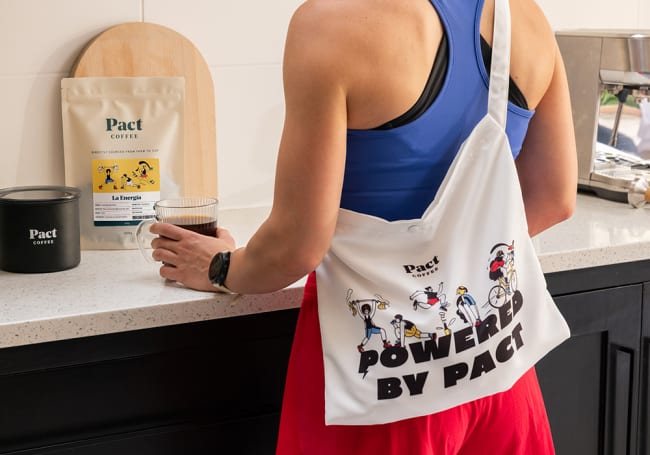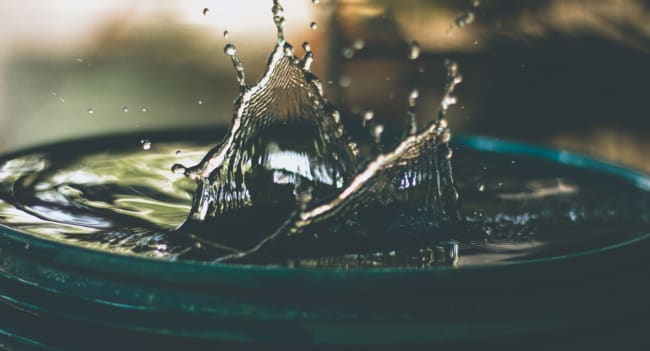The short answer? No, not really. Coffee is bad for plants for the same reason most people love drinking it - because of the caffeine. It means coffee is allelopathic - reducing the growth of other nearby plants that compete for minerals or water.
And that pretty big factor negates any positive effects that might come from the nutrients, minerals, or acid levels in your used grounds… Let’s look at the myths and reality of using coffee in the garden:
The myth: coffee grounds are great in compost and fertiliser
There’s a lot of conflicting information out there. And it’s the nitrogen and generally nutrient-rich nature of coffee that keeps cropping up (if you excuse the agricultural pun). The nitrogen content is said to make coffee a great ‘green material’ for compost, and the magnesium, potassium, and other minerals are thought to be tasty food for your freesias.
Gardening blogs and articles often suggest working used grounds through your soil, sprinkling it on the surface, mixing it through your compost, or using it as mulch to cover the surface - with the idea that this will superpower your plantlife.
The reality: coffee grounds can do more harm than good
There’s a few reasons we’ll rattle off first, before we get to the biggie. First off, coffee is too fine for mulch - making it so compact that water struggles to get through to your plants’ roots, so they die of dehydration. Not a strong start. Then there’s the fact that your soil might not even need more nitrogen, and an overload could restrict growth. So that’s no good.
But there’s one major thing that makes coffee bad news for your back garden…

The myth: there’s no caffeine left in used coffee grounds
If this myth were true, then coffee probably would be a great addition to your veg patch. Some people are under the impression that the only danger is with fresh coffee grounds - which haven’t had the caffeine leached out of them by brewing. But don’t be fooled. Used coffee grounds still have a considerable amount of caffeine in them, the equivalent to a cup of tea!) - which is less than optimal for your plants.
The reality: the caffeine in used coffee grounds is bad news
Forget about any kind of spinach/Popeye situation - caffeine is not going to give your plants a kick up the… roots, when it comes to growing speed. Let’s look at the facts. Caffeine exists as a weapon, killing off competing organisms in the surrounding area. It’s called “allelopathy” and (quite obviously) means that drenching your dahlias with coffee is probably not a good idea.
It can suppress germination and new growth in a big way… so we’d advise not using it at all, despite all its potentially positive effects. And - just to hammer it home - those may have been overblown too…
The myth: coffee grounds are good for acid-loving plants
Some plants love acidic soil - azaleas, rhododendrons, daffodils and more! So it follows that they wouldn’t mind the acidic nature of coffee (assuming that it is, of course). But not all plants like higher acid levels, and it’s hard to compost/fertilise in a vacuum - risking damaging some of the others. Not to mention that the pH of your soil can’t be permanently changed by just adding something acidic - so it may be a pointless exercise anyway.
The reality: coffee isn’t necessarily that acidic
Let’s get to the crux of the matter. Is coffee even that acidic anyway? Firstly, it depends on the coffee - how it was processed, where it was grown. After all, that’s part of why different coffees taste different! Beyond that, it’s unclear how acidic used coffee grounds actually are - which means that (again) it’s probably not worth the risk, given the drawbacks.

The myth: coffee grounds can repel slugs
Besides all the possible benefits and drawbacks to your plants, some suggest using coffee to ward off any unwanted garden invaders - like slugs. They suggest forming a barrier of coffee grounds (almost like a horticultural fairy ring!) around your greenery, as the slippery so-and-sos won’t want to cross over and have a munch. But is it true?
The reality: this is falsely based on a study using concentrated caffeine
In essence, no. This folk story is a misunderstanding and exaggeration - thought to have originated from a study where highly concentrated amounts of caffeine were sprayed directly on plant leaves and shown to kill slugs. But these caffeine levels were far, far above that which you’d find in used coffee grounds (or coffee itself). There’s no real evidence that slugs care about your soggy grounds at all…

Other coffee and gardening questions:
Do coffee grounds attract rats?
There’s no evidence that rats are attracted to coffee grounds, nor that it acts as a deterrent. So we wouldn’t worry either way! Where there could be cause for concern, though, is if you have any furry friends of your own. Dogs have a knack of gobbling up everything they see, and the less caffeine for them the better.
Can coffee change the colour of flowers?
The dastardly folk story strikes again! Legend has it that coffee can change the colour of hydrangea flowers - as its flowers are said to be blue in acidic soil, and pink in alkaline soil. As discussed, the acidity in coffee is unlikely to change the nature of the soil itself… so not gonna happen!
Does coffee keep bugs away?
Ok, some people talk about keeping ants away - saying they keep clear if you block off your plants with lines of ground coffee, similar to the ‘slug logic’. There’s two issues here: as pointed out in this blog, ants are good news for your garden - improving the structure of your soil, and eating other nastier insects. The other issue is that, as the same blog found, it’s not that much of a deterrent to them - a boundary of coffee might slow them down, but they’ll eventually end up moving it (granule by granule) by themselves.
However, coffee can be useful for repelling mosquitoes - if you burn it, that is! They don’t like the smell… which is understandable, as it’s burnt coffee!

Alternative uses for coffee grounds:
Face mask
Turns out coffee can be a pick-me-up in more ways than one. Puffiness under your eyes can be tackled by mixing your coffee grounds into a paste with water, and leaving on for around 15 minutes - it’s said to reduce swelling, due to being a diuretic!
And actually, slathering yourself in coffee can have other benefits. Its coarseness makes it a perfect skin exfoliator – just mix with sugar and coconut oil, and focus on any dry areas. You’ll be as smooth as the brew you’ve just chugged in no time.
Neutralise nasty fridge smells
You can banish bad smells in your fridge, just using coffee. Place an open bowl of grounds in your refrigerator and wait for the sweet smell of coffee to break down any residual food odours, freshening up even the grimiest of fridges!
Get garlic smells off your hands
Love garlic, but hate the smell of garlic lingering on your hands for hours after making a cracking pasta dish? No worries! Just scrub your hands with your (cooled down!) coffee grounds and the stink should come right off.
Hide scratches in furniture
Don’t think coffee should stay in the kitchen – we’re retiring to the lounge for this one. Settle down on the sofa, open a packet of Hobnobs and kick your legs up onto that scuffed coffee table. But, get this - it doesn’t have to stay looking scruffy! For wood tables with superficial scratches, coffee grounds can be applied (try a test patch first!) to blend them in with the rest of the wood grain. Just dab on using a cotton bud, and enjoy that ‘upcycling’ glow.







